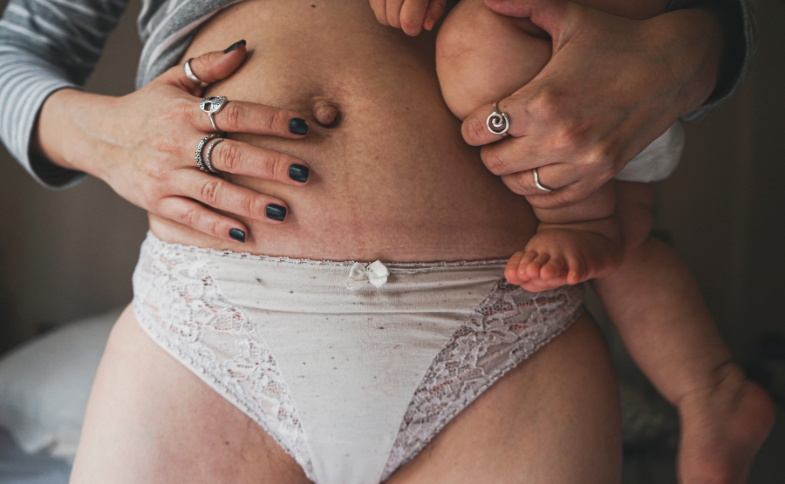Managing Postpartum Body Changes: Self-Care Tips for New Moms
Congratulations, new mama! You've just completed an incredible journey of pregnancy and childbirth, and now you're embarking on the beautiful adventure of motherhood. Along with the joy and excitement of having a new baby, you might be noticing some changes in your body that leave you feeling a bit overwhelmed or unsure. It's important to remember that these changes are completely normal and a testament to the amazing feat your body has accomplished.
In this article, we'll explore the various postpartum body changes you might be experiencing and offer practical, compassionate self-care tips to help you navigate this transition. From physical recovery to emotional well-being, we'll cover a range of topics designed to support you during this special time. Remember, every woman's postpartum journey is unique, and there's no “right” way to feel or look after giving birth. Our goal is to provide you with information and strategies to help you feel comfortable, confident, and empowered as you adjust to your new role and your changing body.

Understanding Postpartum Body Changes
After giving birth, your body goes through a lot of changes. Let's talk about some of the most common ones:
Weight Changes
It's normal to still look pregnant for a while after giving birth. Your body needs time to get back to its pre-pregnancy state. Most women lose about 13 pounds (6 kg) during birth, including the baby, placenta, and amniotic fluid. The rest of the weight may take several months to lose.
Breast Changes
Your breasts might feel full, tender, or leak milk. This is normal as your body prepares to feed your baby. Your breasts may get larger as they fill with milk. You might experience sore or cracked nipples, especially if breastfeeding.
Skin Changes
You might notice stretch marks or changes in your skin color. These often fade over time. Some women develop a dark line down their stomach (linea nigra) which usually fades after birth. You may experience more sweating as your body gets rid of excess fluid.
Hair Changes
Some women lose more hair than usual after having a baby. Don't worry, this is temporary! Hair loss usually peaks about 3-4 months after delivery. Your hair should return to its normal growth cycle within 6-12 months.

Mood Changes
Feeling emotional or having mood swings is common. Your hormones are adjusting, and you're adapting to a big life change. You might feel overwhelmed, anxious, or have “baby blues” for a few weeks after birth. If these feelings persist or intensify, talk to your doctor about postpartum depression.
Self-Care Tips for New Moms
Taking care of yourself is just as important as taking care of your baby. Here are some tips to help you feel your best:
Healthy Eating
Eating well can help your body recover and give you energy. Try to:
- Eat lots of fruits and vegetables
- Choose whole grains
- Include protein in your meals
- Stay hydrated by drinking plenty of water
- If breastfeeding, you may need to eat an extra 300-500 calories per day
Gentle Exercise
Moving your body can help you feel better, but don't push yourself too hard. Some good options are:
- Taking short walks with your baby
- Doing gentle stretches
- Trying postpartum yoga (with your doctor's okay)
- Start with 5-10 minutes a day and gradually increase

Rest and Sleep
Getting enough rest is crucial, even though it can be hard with a new baby. Try to:
- Sleep when your baby sleeps
- Ask family or friends to help so you can nap
- Create a relaxing bedtime routine for yourself
- Aim for 7-9 hours of sleep in a 24-hour period, even if it's broken up
Emotional Well-being
Taking care of your mental health is just as important as your physical health. Here are some tips:
- Talk about your feelings with someone you trust
- Join a new mom's group for support
- Take a few minutes each day to do something you enjoy
- Practice mindfulness or deep breathing exercises
Physical Recovery
Your body needs time to heal. Remember to:
- Follow your doctor's advice about physical activity
- Use a postpartum support belt if recommended
- Do pelvic floor exercises (Kegels) to strengthen your muscles
- Be gentle with yourself and don't rush the recovery process
Skin Care
To help your skin recover:
- Keep your skin moisturized
- Drink plenty of water
- Be patient – many skin changes will improve with time
- Protect your skin from the sun, especially if you have melasma (pregnancy mask)
When to Seek Help
While many postpartum changes are normal, it's important to know when to talk to your doctor. Reach out if you:
- Feel very sad or anxious for more than two weeks
- Have thoughts of harming yourself or your baby
- Experience severe pain or heavy bleeding
- Have signs of infection like fever or breast pain
- Feel overwhelmed and unable to care for yourself or your baby
Remember, asking for help is a sign of strength, not weakness.

Embracing Your New Body
Your postpartum body tells a beautiful story. It's created and nurtured a new life. Try to:
- Be kind to yourself
- Focus on what your body can do, not just how it looks
- Wear comfortable clothes that make you feel good
- Celebrate small victories and milestones in your recovery
- Remember that every woman's postpartum journey is different
More Resources for New Moms
Looking for more information on postpartum care and adjusting to motherhood? Check out these helpful articles:
- How to Survive the First 6 Weeks as a New Mom (and Enjoy Them Too!)
- The Importance of Postnatal Care: What New Moms Need to Know
- Nutrition for New Moms: Eating Well for You and Your Baby
- How to Balance Work and Parenthood: Tips for New Parents
- Coping with Postpartum Depression: Resources and Support for New Moms
- Strategies For Better Rest For The Sleep Deprived Mom
These articles provide additional insights and tips to help you navigate this new chapter in your life.
Final Thoughts
Remember, every mom's postpartum journey is different. Your body has done something amazing, and it deserves time and care to recover. Be patient with yourself, celebrate small victories, and don't hesitate to ask for help when you need it. You're doing great, mama! Take it one day at a time, and before you know it, you'll be feeling more like yourself again. You've got this!